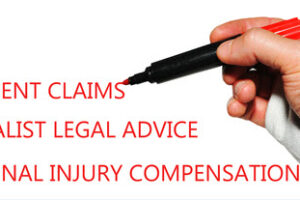Workers’ Compensation And Retaliation

When someone gets hurt on the job, they are entitled under Florida law to file for workers’ compensation if their employer is one required to carry it. This is the right of any worker – but in some cases, employees can face retaliatory action, in the form of demotion, pay cuts, or even termination, as a reaction to filing workers’ compensation. This is manifestly unjust and employers can be held liable if the right sequence of facts can be shown to have occurred. If you have experienced adverse employment action, you may be entitled to compensatory damages.
Identify “Retaliatory” Conduct
Before proceeding with any kind of claim, it is important to understand Florida’s law surrounding the matter. The relevant statute bars an employer from “discharg[ing], threaten[ing] to discharge, intimidat[ing] or coerc[ing]” an employee on the basis that they filed a workers’ compensation claim. In other words, if an employer can show that the adverse employment action was not related to the workers’ compensation filing, the employer will almost certainly not be found liable. While an employee is not insulated from any kind of termination or pay cut simply because they might have been injured, it is also sadly not uncommon for an employer to terminate or otherwise ‘discipline’ an employee and attempt to dress up the action as something done in the ordinary course of business.
In order to be ‘retaliatory’ conduct, three things must need to have occurred: (1) a statutorily protected action, such as exercise of an employee’s workers’ compensation rights or their right to blow the whistle on any unethical activity; (2) a negative employment action, such as a pay cut or termination, and (3) a causal connection between the two. An employer will often try to allege that #3 does not exist. It is the employee’s job to prove that it does.
Filing A Claim
If you believe that you have been wrongfully terminated or otherwise retaliated against, you do have options. The Equal Employment Opportunity Commission (EEOC) receives countless retaliation complaints each year – in FY 2013 nearly half of all complaints received by the agency involved allegations of retaliation – and they are well versed in investigating the potential of a charge. Be advised that Florida is what is called a dual filing state, meaning that if one files a charge with the EEOC, it will also be forwarded to the state equivalent, the Florida Commission on Human Relations (FCHR).
Once a charge has been filed, it may be that you will be able to resolve the issue through mediation or other internal mechanisms, but if not, the EEOC will do one of two things – they will either take up your case, or they will release your charge, providing you with what is called a right-to-sue letter. This letter essentially states that while the agency will not take up your case itself, there is the possibility that your employer may be found liable, and as such, you may take the matter to court if you desire.
Contact A Winter Park Retaliation Attorney
Filing for workers’ compensation is your right under Florida law, and an employer who tries to punish you for exercising that right should be held liable if possible. The Winter Park retaliation attorneys at the Hornsby Law Group are happy to sit down with you and try to help answer your questions. Contact us today to schedule a consultation.
Resource:
leg.state.fl.us/statutes/index.cfm?App_mode=Display_Statute&URL=0400-0499/0440/Sections/0440.205.html